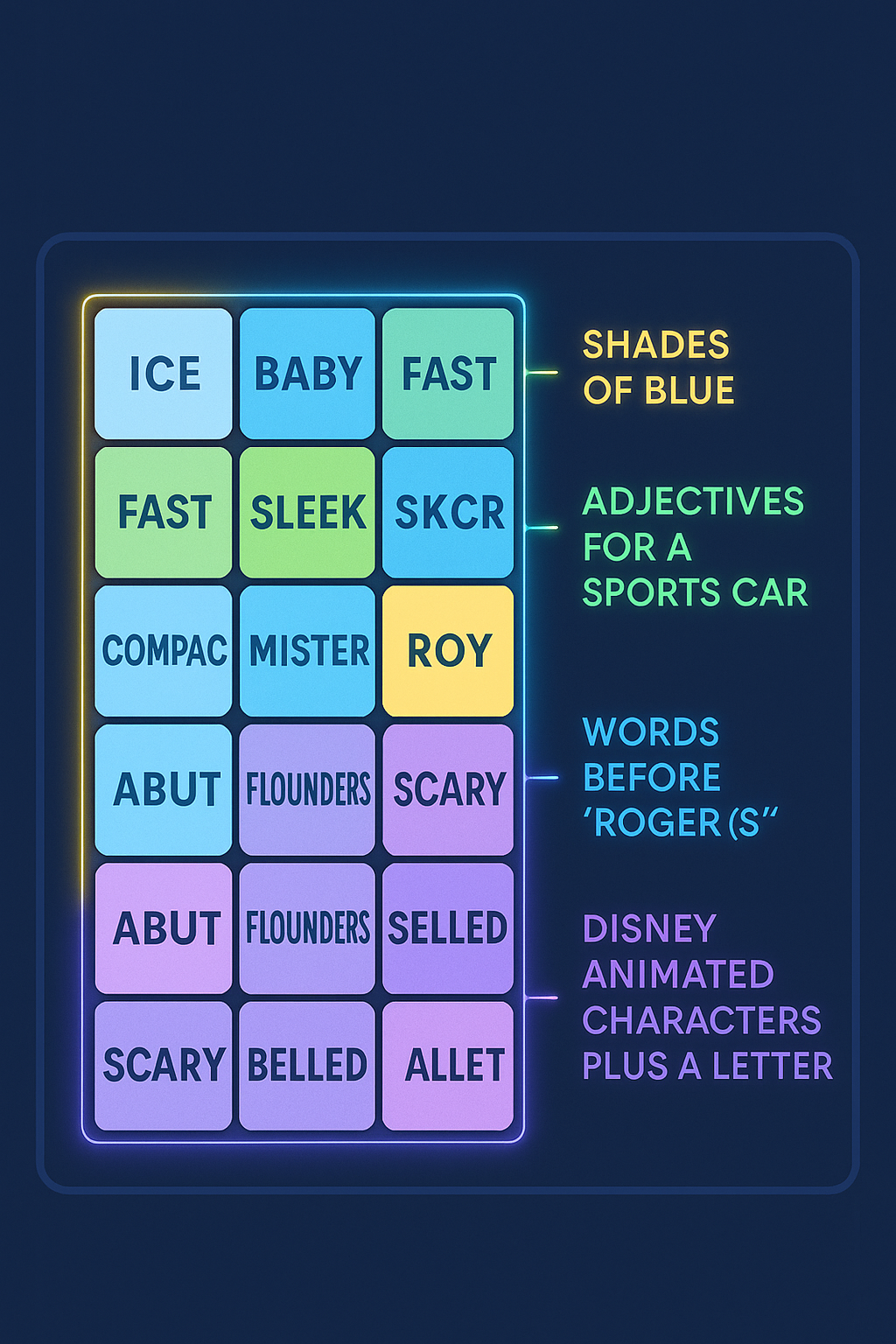General
The Ultimate Guide to labradorii: Everything You Need to Know

Introduction to labradorii Retrievers
Welcome to the ultimate guide to Labrador Retrievers – your one-stop resource for everything you need to know about these incredible canine companions! Whether you’re a die-hard dog lover or considering adding a furry friend to your family, this comprehensive article will provide you with all the essential information about labradorii. From their fascinating history and physical characteristics to their health considerations and training tips, we’ve got it covered.
Labradors are undeniably one of the most popular dog breeds in the world, known for their friendly nature, intelligence, and unwavering loyalty. Their adorable faces and wagging tails have melted countless hearts, making them beloved pets in households across the globe. But there’s so much more to these amazing dogs than meets the eye!
Join us as we delve into the captivating world of labradorii and discover what makes them truly exceptional. So grab a cup of coffee (or perhaps some treats for your four-legged friend), get comfortable, and let’s embark on this enthralling journey together.
History and Origin of the Breed
Labrador Retrievers have a rich and fascinating history that dates back to the early 19th century. The breed originated in Newfoundland, Canada, where they were first bred by fishermen to assist in their work. These dogs were known for their exceptional swimming abilities, retrieving nets, and hauling ropes.
The ancestors of Labradors are thought to be the St. John’s Water Dog, a now-extinct breed native to Newfoundland. They were brought over by English ships and crossbred with local dogs, resulting in the development of what we now know as Labrador Retrievers.
Their popularity quickly spread beyond Canada’s shores when British nobility discovered their remarkable skills as hunting companions. In England, Labradors gained recognition as excellent retrievers for waterfowl hunting due to their strong desire to please and natural ability in water.
During World War I and II, Labradors served as valuable search-and-rescue dogs for both sides of the conflict thanks to their intelligence and trainability. Their loyalty and gentle nature made them suitable companions for soldiers on the front lines.
Today, Labradors continue to thrive not only as working dogs but also beloved family pets around the world. Their friendly disposition, high energy levels, and adaptability make them ideal companions for active individuals or families with children.
Labrador Retrievers truly embody loyalty and devotion through generations of selective breeding for specific traits. Whether serving alongside humans during wartime or cuddling up on a cozy couch at home—these incredible canines have certainly left an indelible mark on history.
Physical Characteristics and Temperament
Labrador Retrievers are known for their distinctive physical characteristics and friendly temperament. They are medium to large-sized dogs with a strong, muscular build. Labradors have broad heads, expressive eyes, and floppy ears that give them an adorable appearance.
One of the most notable features of Labradors is their double coat, which consists of a dense, waterproof outer layer and a soft undercoat. This helps protect them from cold weather and water while also making them excellent swimmers. Their coats come in three main colors: yellow, chocolate brown, and black.
In terms of temperament, Labradors are renowned for being outgoing, playful, and eager to please. They have an innate love for people and enjoy spending time with their families. Labradors are generally good-natured dogs who get along well with children and other pets.
Due to their high energy levels and intelligence, Labrador Retrievers require regular exercise both mentally and physically to prevent boredom or destructive behavior. They thrive on activities like long walks, swimming sessions or playing fetch.
Labradors also make great service dogs due to their trainability and willingness to work. With proper training from a young age using positive reinforcement methods such as treats or praise-based rewards – they can excel at obedience tasks or even become therapy dogs.
Overall,
Labrador Retrievers possess unique physical attributes that contribute to their charm while maintaining an amiable temperament that makes them wonderful companions for individuals or families alike.
Health and Common Medical Conditions
Labrador Retrievers are generally a healthy breed, but like any dog, they can be prone to certain health issues. It’s important for owners to be aware of these potential conditions so they can provide the best care for their furry friends.
One common medical condition in Labradors is hip dysplasia, which occurs when the hip joint doesn’t develop properly. This can lead to discomfort and difficulty walking. Regular exercise and maintaining a healthy weight can help reduce the risk of developing this condition.
Another health concern is obesity. Labradors have hearty appetites and love food, which means they can easily gain weight if not monitored closely. Obesity puts strain on their joints and organs, increasing the risk of other health problems such as diabetes and heart disease.
Labradors are also prone to allergies, including food allergies and skin allergies. Common symptoms include itching, redness, and ear infections. Identifying the allergen through elimination diets or allergy testing is crucial in managing these conditions.
Additionally, Labrador Retrievers may experience eye problems such as cataracts or progressive retinal atrophy (PRA), which causes gradual vision loss over time. Regular check-ups with a veterinarian can help detect these issues early on.
In conclusion,
While Labrador Retrievers are generally healthy dogs, it’s essential for owners to be aware of potential medical conditions that may arise throughout their pet’s life. By providing proper nutrition, regular exercise, routine vet visits, and attentive care at home – labradorii will have every opportunity to live a long and happy life.
Training and Care Tips for Labrador Retrievers
Labrador Retrievers are intelligent and energetic dogs, making them a joy to train. Here are some essential tips to keep in mind when it comes to training and caring for your Labrador.
Consistency is key. Labradors respond well to routine and clear expectations. Establishing a consistent training schedule will help your Labrador understand what is expected of them.
Positive reinforcement is crucial. Reward-based training methods work best with Labradors as they are eager to please their owners. Use treats, praise, and affection as rewards when your Labrador displays good behavior or successfully learns a new command.
Additionally, socialization is important from an early age. Expose your Labrador to various people, animals, environments, and situations so that they become well-adjusted adults who can handle different scenarios with ease.
Exercise is another vital aspect of caring for a Labrador Retriever. These dogs have high energy levels and require plenty of physical activity each day. Regular walks or runs in the park, playing fetch or swimming sessions will help keep them happy and healthy.
Proper nutrition also plays a significant role in their overall well-being. Consult with your veterinarian about the right diet plan for your Labrador based on its age, weight, and any specific health concerns it may have.
Lastly but importantly: be patient! Training takes time and effort; don’t get discouraged if progress seems slow at times. Stay consistent with your approach while remaining calm yet firm during training sessions.
By following these tips along with love and care towards your furry friend’s needs you’ll build a strong bond between you two that lasts forever.
Fun Facts about Labradors
Labrador Retrievers are popular dogs known for their friendly personality and intelligence. Here are some fun facts that you might not know about these lovable canines:
1. Origin of the Breed: Labrador Retrievers were originally bred in Newfoundland, Canada as working dogs for fishermen. They helped retrieve fish from the icy waters, which is how they got their name.
2. Great Swimmers: Labradors have a water-resistant coat and webbed toes, making them excellent swimmers. They love to splash around in lakes, rivers, or even your backyard pool!
3. Versatile Athletes: These dogs excel in various activities such as agility trials, obedience competitions, search and rescue operations, and even as therapy dogs due to their gentle nature.
4. Excellent Sniffers: Labradors have an incredible sense of smell which makes them well-suited for detection work like drug sniffing or tracking down missing persons.
5. Happy Eaters: Labradors love food! They have a hearty appetite and can sometimes be prone to overeating if not monitored closely.
6. Gentle Giants: Despite their size (they can weigh between 55-80 pounds), Labradors are known for being gentle with children and other animals.
7. Popular on Screen: Due to their friendly appearance and trainability, Labradors often make appearances in movies and TV shows – remember Marley from “Marley & Me”?
8. Record-Holders: The Labrador Retriever holds the record for the longest-serving search-and-rescue dog named Endal who saved his owner’s life by putting him in recovery position after being hit by a car!
9.
Celebrity Companionship : Many celebrities own labrador retriever pets including Prince Charles , Jennifer Aniston , Drew Barrymore etc .
10.
Life Expectancy : On average , labrador retrievers live upto 12 years. However , with proper care and nutrition , they can live even longer.
Choosing the Right Labrador for You
When it comes to selecting a Labrador retriever, there are several factors to consider. First and foremost is the size of your living space. Labradors are known for their energy and enthusiasm, so they may not be suitable for tiny apartments or homes with limited outdoor access.
Next, think about your lifestyle and activity level. Labradors thrive on exercise and mental stimulation, so if you enjoy outdoor activities like hiking or running, this breed might be a great match for you. However, if you prefer a more laid-back lifestyle, a Labrador’s high energy levels could become overwhelming.
Another important consideration is whether you have children or other pets in your household. Labradors are typically friendly and gentle with kids and other animals but introducing them properly is crucial to ensure everyone gets along well.
Additionally, grooming requirements should be taken into account when choosing a Labrador. Their double coat requires regular brushing to prevent matting and shedding can be heavy at times.
Research reputable breeders or rescue organizations that specialize in Labradors. It’s essential to find a responsible breeder who prioritizes health testing and socialization of their puppies.
By carefully considering these factors before bringing home a Labrador retriever, you can ensure that both you and your new furry friend will have an enjoyable life together.
Conclusion
Labrador Retrievers, or labradorii as they are sometimes referred to, are truly incredible dogs. From their rich history and origin to their physical characteristics and temperament, there is so much to appreciate about this breed. Labradors not only make wonderful companions but also excel in various roles such as therapy dogs, service animals, search and rescue dogs, and even skilled hunting partners.
When it comes to caring for a Labrador Retriever, it’s important to provide them with plenty of exercise and mental stimulation. Regular training sessions will help keep their minds sharp while providing an opportunity for bonding between you and your furry friend. Additionally, maintaining a balanced diet tailored to their nutritional needs can contribute greatly to their overall health.
Like any dog breed, Labradors can be prone to certain medical conditions. It’s crucial for owners to be aware of the potential health issues that may affect these lovable creatures. Regular check-ups with a veterinarian along with preventative measures such as vaccinations and proper grooming can help ensure your Labrador’s well-being.
Whether you’re an experienced dog owner or considering getting a Labrador Retriever for the first time, understanding the breed-specific traits will assist in making an informed decision. Labradors thrive in active households where they receive plenty of love and attention from their human family members.
In conclusion (although I promised no “in conclusions”!), labradorii are undeniably one of the most popular dog breeds around the world—and for good reason! Their friendly nature, intelligence, versatility, and loyalty make them fantastic pets for individuals or families alike.
So if you’re looking for a loving companion who will bring joy into your life day after day—look no further than the wonderful world of labradorii.
General
80F to C: Convert Fahrenheit to Celsius Easily in 2025

Looking to convert 80°F to Celsius in 2025? You’re in the right place. Whether you’re cooking, traveling, studying, or simply curious, understanding how Fahrenheit converts to Celsius can make life easier. This guide covers everything you need: from the exact temperature conversion to an easy-to-use chart, a calculator tool, and frequently searched Fahrenheit to Celsius conversions.
🔥 What is 80°F in Celsius?
To convert 80°F to Celsius, use this formula:
C = (F – 32) × 5/9
So, (80 – 32) × 5/9 = 48 × 5/9 = 26.67°C
➡️ Answer: 80°F = 26.67°C
This is a pleasantly warm temperature — perfect for a summer day or a heated indoor environment.
📊 Fahrenheit to Celsius Quick Reference Chart
| Fahrenheit (°F) | Celsius (°C) |
|---|---|
| 32°F | 0°C |
| 50°F | 10°C |
| 60°F | 15.56°C |
| 70°F | 21.11°C |
| 80°F | 26.67°C |
| 90°F | 32.22°C |
| 98.6°F | 37°C (Body Temp) |
| 100°F | 37.78°C |
| 104°F | 40°C |
| 212°F | 100°C (Boiling Point) |
This chart is handy for everyday temperature reference in the kitchen, outdoors, or classrooms.
🔢 Fahrenheit to Celsius Online Calculator
🧠 Why This Conversion is Useful in 2025
As global travel, culinary standards, and science education evolve, more people are shifting between Fahrenheit (used mainly in the U.S.) and Celsius (used worldwide). Especially in 2025, where tech gadgets and smart thermostats show dual units, knowing how to convert 80°F to C and beyond is very helpful.
🔍 Related Popular Conversions
| Fahrenheit | Celsius |
| 60°F | 15.56°C |
| 70°F | 21.11°C |
| 75°F | 23.89°C |
| 80°F | 26.67°C |
| 85°F | 29.44°C |
| 90°F | 32.22°C |
| 98.6°F | 37°C |
| 100°F | 37.78°C |
These are commonly searched temperatures for weather, body temperature, and comfort settings.
🌐 Internal Resources
- Read more tech guides on our homepage: Space Coast Daily
- Also check: What is Janitor AI – Features & Use Cases in 2025
🧾 Final Thoughts: Easy Conversions = Smarter Living
Converting 80F to C is simple, but essential. Whether you’re adjusting your thermostat, preparing international recipes, or just curious about weather changes in 2025, having a reference guide or calculator can save time.
Bookmark this page and share it — and let your readers enjoy the simplicity of temperature conversion in a modern world.
📈 SEO Meta Details
- Title: 80F to C – Convert 80 Degrees Fahrenheit to Celsius (2025 Guide)
- Meta Description: Quickly convert 80°F to Celsius with our 2025 guide. Includes formula, chart, live calculator, and popular conversions for easy reference.
- Slug/URL: /2025/07/80f-to-celsius-conversion-guide
- Tags: Fahrenheit to Celsius, 80F to C, Temperature Conversion, Celsius Chart, 2025 Weather Guide
🖼️ Featured Image Prompt:
A clean and modern infographic showing a thermometer with Fahrenheit and Celsius scales side-by-side. Bright numbers like 80°F = 26.67°C clearly labeled. Background has sunny weather or a kitchen scene. Use soft blue, white, and red tones. Ideal size: 1200x630px.
Posted by: Space Coast Daily Uk Team
Date: July 2025
General
Prayer for Healing: How to Seek Divine Comfort in Difficult Times

🙏 Introduction:
In times of physical pain, emotional distress, or spiritual confusion, many turn to prayer for healing as a source of strength and comfort. Whether you’re battling illness or supporting a loved one, healing prayers can offer hope and peace when medicine and logic fall short. This article explores the meaning, types, and real-life power of healing prayer — helping you connect deeply with faith and find guidance during trying times.
🕊️ What Is a Prayer for Healing?
A prayer for healing is a spiritual invocation asking for divine intervention in times of illness, emotional turmoil, or spiritual crisis. It is not limited to physical ailments; people also pray for emotional healing, mental wellness, and peace of soul.
✝️ Common Elements of a Healing Prayer:
-
Faith in a higher power (God, the Universe, etc.)
-
Sincerity in intention and delivery
-
Specificity about the illness or need
-
Trust in the outcome, whether immediate or gradual
📝 Note: Healing prayers vary across religions and cultures but carry a common core: the desire for restoration, comfort, and divine grace.
💡 Why Do People Pray for Healing?
1. To Find Hope When Science Falls Short
Even the most advanced medical treatments may not address the emotional or spiritual toll of illness. Prayer brings hope when medicine cannot.
2. To Feel Connected to God or a Higher Power
In moments of weakness, prayer serves as a bridge to the divine — giving people a sense of spiritual presence and support.
3. To Empower the Mind-Body Connection
Studies have shown that positive beliefs and mental peace can enhance physical recovery. Prayer is a powerful tool for calming the mind and reducing stress.
[EXTERNAL LINK: Include link to a medical or psychological study supporting mind-body connection]
🙌 Types of Healing Prayers
💗 1. Physical Healing Prayers
Used when someone is ill or recovering from surgery or injury.
Example:
“Lord, I ask for Your healing touch. Remove the pain, restore the body, and renew strength.”
🧠 2. Emotional and Mental Healing Prayers
Ideal for anxiety, depression, heartbreak, or grief.
Example:
“God, calm the storms within me. Heal my mind, soothe my heart, and fill me with peace.”
🤲 3. Spiritual Healing Prayers
When someone feels spiritually lost, confused, or disconnected.
Example:
“Father, bring me closer to You. Remove my doubts, guide my path, and renew my faith.”
🌎 4. Intercessory Healing Prayers
Prayers offered on behalf of someone else.
Example:
“I lift up [Name] to You. May Your healing light surround and restore them completely.”
📜 5 Powerful Prayers for Healing
Here are some timeless prayers used by millions across faiths:
-
The Serenity Prayer (for peace and healing):
“God, grant me the serenity to accept the things I cannot change…”
(Commonly used in AA and recovery communities) -
Psalm 23:
“Though I walk through the valley of the shadow of death, I will fear no evil…”
(A prayer of comfort and spiritual strength) -
Catholic Prayer for Healing (St. Padre Pio):
“Heavenly Father, I thank You for loving me. I ask You to heal those who are sick…”
-
Islamic Dua for Healing (Shifa):
“Allahumma Rabban-nas, adhhib al-ba’sa, ishfi antash-Shafi, la shifa’a illa shifa’uk…”
Translation: “O Allah! Lord of mankind, remove this disease and cure [him/her].” -
Personal Prayer:
“Lord, You are my strength and healer. Touch me with Your love and make me whole again.”
🔁 How to Create Your Own Prayer for Healing
You don’t always need pre-written words. Creating a personal healing prayer can be powerful and authentic.
✅ Steps:
-
Start by addressing your higher power.
-
State what you need healing for — body, mind, emotions, or spirit.
-
Express trust or surrender to divine will.
-
Close with words of gratitude or hope.
Example:
“Dear God, I feel broken and weary. Please restore my body and uplift my spirit. I believe in Your power. Thank You for hearing my cry.”
🧘 Additional Practices to Enhance Healing Prayers
-
Meditation before or after prayer
-
Lighting a candle as a spiritual symbol
-
Reading healing scriptures (e.g., James 5:14–15, Quran 26:80)
-
Journaling your prayer journey
-
Asking others to pray with you or for you
[INTERNAL LINK: Add link to a related article on “Benefits of Meditation & Prayer” or “How to Build a Prayer Routine”]
🧾 Conclusion: Trust the Process of Divine Healing
Whether you’re facing a health crisis or emotional pain, prayer for healing provides a sacred path to peace, clarity, and hope. It might not always result in immediate physical recovery, but it does offer spiritual resilience that’s just as important.
Let prayer become your refuge, not just in pain, but as a daily habit of inner connection.
❓ FAQ: Prayer for Healing
1. Does prayer really help with healing?
Yes, many people find spiritual peace and emotional strength through prayer, which can positively impact recovery.
2. Do I need to follow a specific religion to pray for healing?
No. Healing prayers are personal. Anyone can pray, regardless of religious affiliation.
3. Can I pray for someone else’s healing?
Absolutely. Intercessory prayer is a powerful way to show love and support.
4. How often should I pray for healing?
There’s no set rule. Pray as often as you feel the need — once a day or multiple times.
5. What if I don’t see results?
Healing can be physical, emotional, or spiritual. Trust that your prayer is heard, even if the results aren’t immediate.
General
Connections Clues – The Ultimate Guide to Winning NYT’s Daily Word Puzzle (2025)

Do you find yourself hooked on the New York Times’ trending word game “Connections”? You’re not alone. With its mix of logic, language, and lateral thinking, Connections has become one of the most popular daily word games worldwide. But if you’re stuck or looking to improve, understanding “Connections clues” is your key to consistent success.
In this guide, we’ll explain what Connections clues are, how they work, and how you can use them to solve each puzzle faster — especially if you’re eyeing that perfect score!
✅ What Is the NYT Connections Game?
Connections is a free daily puzzle game by The New York Times, available on its website and Games app. The objective is simple but tricky:
-
You’re given 16 seemingly random words in a 4×4 grid.
-
Your job is to group them into four sets of four based on a hidden connection — such as a common category, wordplay, or phrase.
-
Each group forms a meaningful link like:
-
Colors (e.g. navy, teal, maroon, jade)
-
Movie characters (e.g. Elsa, Simba, Mulan, Nemo)
-
Words that rhyme (e.g. bright, light, fight, kite)
-
Synonyms (e.g. happy, joyful, cheerful, gleeful)
-
🔍 What Are “Connections Clues”?
Connections clues are subtle hints — official or unofficial — that help you identify the themes behind each group in the puzzle.
💡 They Come in 3 Main Forms:
-
Themed Hints (Unofficial):
Many blogs and newsletters (including Forbes and Pastimes) share daily clue summaries like:-
🟨 Yellow group: “Types of pasta”
-
🟩 Green group: “Singers named Taylor”
-
🟦 Blue group: “Tech acronyms”
-
🟪 Purple group: “Pun-based animals”
-
-
Color Coding Inside the Game:
Each correct group is color-coded:-
🟨 Yellow – Easiest group (usually basic or obvious)
-
🟩 Green – Medium difficulty
-
🟦 Blue – Harder group, often abstract or thematic
-
🟪 Purple – Usually the hardest, often involving puns or wordplay
-
-
Daily Word Group Examples:
You’ll often find groupings like:-
BABY, ICE, SKY, POWDER = Shades of blue
-
FAST, SLEEK, SPORTY, COMPACT = Car descriptions
-
GINGER, ROY, MISTER, JOLLY = Words before “Roger(s)”
-
These clues don’t appear directly in the NYT game, but expert players and bloggers interpret them based on the word groupings each day.
🧠 How to Use Connections Clues to Your Advantage
If you want to consistently solve the game and even hit perfect streaks, use these tips:
1. Start With the Obvious
Look for basic categories — colors, animals, numbers, or food. These often fall under the yellow group.
2. Watch for Wordplay
Purple clues can include homophones, hidden meanings, or misspelled versions of pop culture characters (e.g. BELLED = Belle from Beauty and the Beast).
3. Look at the Grid as a Whole
Groupings like “BABY, SCARY, GINGER, SPORTY” might make you think of the Spice Girls — which was a trick in a recent July puzzle! Don’t fall for decoys.
4. Shuffle the Grid
The game allows you to shuffle the word positions. This visual change can help you spot unexpected links.
5. Use External Clue Blogs
Sites like Forbes, Pastimes, and even Reddit’s r/ConnectionsNYT subreddit share daily hints. Just search:
“Connections clues July [Date]” and you’ll likely find a helpful hint thread.
🔗 Examples of Connections Clues from Recent Games
Let’s look at a real example from the July 14, 2025 NYT Connections game:
Words:
SPORTY, JOLLY, ICE, GINGER, BABY, POWDER, COMPACT, SCARY, FAST, FLOUNDERS, MISTER, SKY, BELLED, ABUT, ROY
Clues Interpreted by Experts:
-
🟨 Yellow: Shades of blue – ICE, POWDER, SKY, BABY
-
🟩 Green: Car adjectives – COMPACT, FAST, SLEEK, SPORTY
-
🟦 Blue: Before “Roger(s)” – JOLLY, MISTER, ROY, GINGER
-
🟪 Purple: Disney characters + letter – SCARY (Scar), BELLED (Belle), ABUT (Abu), FLOUNDERS (Flounder)
This combination of creative clues + pattern recognition is what makes the game both challenging and fun!
📱 Where Else Can You Find Connections Clues?
-
NYT’s official archive (for subscribers)
-
Discord communities dedicated to word games
-
Newsletter round-ups like “Pastimes”
-
Gaming sections on Forbes and similar blogs
-
Reddit puzzle communities
These sources often post early hints before the answers go public.
🎯 Final Thoughts: Should You Play Using Connections Clues?
Absolutely. Using Connections clues isn’t cheating — it’s smart strategy. They help you:
-
Save lives (you only get 4 mistakes!)
-
Train your brain in word associations
-
Learn new vocabulary and categories
-
Have fun with a daily mental challenge
Whether you’re solving solo or competing with friends, clues give you the edge.
🔗 Cowordle – A Collaborative Twist on the Wordle Craze
🔗spacecoastdaily.co.uk
-

 Tech2 weeks ago
Tech2 weeks agoWhat is Janitor AI? Features, Use Cases & How to Use It Safely in 2025
-

 Tech3 weeks ago
Tech3 weeks agoPortalar (PortalAR) Guide 2025: How AR Portals Transform Environments
-

 news2 weeks ago
news2 weeks agoBinomo Scam Exposed: Real Truth Behind the Trading App You Must Know in 2025
-

 news2 weeks ago
news2 weeks agoChatGPT vs Google Gemini: Which AI Wins in 2025?
-

 General3 weeks ago
General3 weeks agoUK Visa Fees 2025: Complete Breakdown for Students, Workers & Tourists
-

 news3 weeks ago
news3 weeks agoJames Webb Telescope News: Exploring the Frontiers of the Universe
-

 Gaming3 weeks ago
Gaming3 weeks agoBest Gaming Accessories Under $50 in 2025 – Ultimate Budget Gaming Upgrades
-

 Fashion3 weeks ago
Fashion3 weeks agoSheer Maxi Dress 2025: The Chic Look Everyone Will Be Wearing







